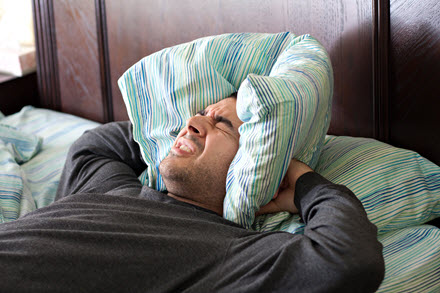When people have trouble sleeping — either falling asleep in the first place or staying asleep once they fall asleep — often their first instinct is to turn to sleeping pills or supplements like melatonin or valerian root. However, these pills aren’t actually the best way to cure insomnia. First, they can be habit forming and cause rebound insomnia when you quit taking them. Second, they actually disrupt normal sleep cycle patterns, so the sleep you get may not be as restful as you’d like. A better option according to the Mayo Clinic and many medical professionals is to use alternative insomnia treatments such as cognitive behavioral therapy.
What’s Involved
Those who choose a Dallas insomnia treatment based on cognitive behavioral therapy will learn a number of techniques that can help them improve their sleep. These could include biofeedback, relaxation training, sleep restriction, stimulus control therapy, remaining passively awake, changing behaviors that affect sleep and changing the sleep environment. While sleeping pills are a short-term solution, these methods can be used for the long-term to actually cure insomnia without the risk of any adverse effects. CBT focuses on the causes of insomnia and not just the symptoms.
First Steps
Before addressing insomnia, it’s important to figure out what could be causing the problem. This could be anything from having too much caffeine during the day, your stress levels, too much screen time close to bedtime or napping too much during the day. Keeping track of the factors that could affect your sleep and noting down when you go to bed, when you fall asleep, how many times you wake up and what time you get up in the morning, as well as the total time you slept can be helpful in detecting patterns. Eating spicy food close to bedtime and drinking too much alcohol are also factors that can affect sleep.
Beneficial Habits
Next, try to incorporate more beneficial sleep habits into your routine. This means starting to wind down about 30 minutes to an hour before going to bed, only using your bed for sex and sleep, not napping, keeping the room cool, exercising earlier in the day and not drinking too many caffeinated or alcoholic beverages. The room should be free of distractions, meaning there shouldn’t be a TV or pets around. Experts recommend getting up and doing something relaxing if you can’t fall asleep within 20 minutes of going to bed and then returning when you’re sleepy again. Go to bed and get up at the same times every day, including weekends, to get your body into the habit of sleeping at night.
Biofeedback Basics
Biofeedback therapy typically involves going to a center that offers this therapy and being hooked up to machines, such as an EMS machine, that allow you and the therapist to monitor your muscle tension, breathing pattern, brain activity and skin temperature. You are then given scenarios that can increase stress, such as remembering a stressful event at work, so you can learn how their body responds to stress. Next, your taught breathing techniques and other relaxation techniques that will help counter these changes and relax the body, which will make it easier for you to fall asleep and stay asleep.
Restricting Time in Bed
Some people find it beneficial to restrict the amount of time they’re in bed. This can cause you to become somewhat sleep deprived, making it easier to fall asleep the next night. As sleep improves, the amount of time you are allowed to be in bed increases. People tend to be very tired in the beginning of the treatment, but over time they can find that they are actually sleeping more and falling asleep more quickly. This helps people get over the habit of lying in bed awake. Your body will once again associate being in bed with sleeping and not with tossing and turning and being awake.
Not Trying So Hard
Another useful thing to try is remaining passively awake. This involves not trying to fall asleep. Sometimes people don’t fall asleep because they’re worried that they won’t be able to do so, so not actively attempting to fall asleep helps make it easier to actually fall asleep because you’ll be more relaxed.
Relaxation Techniques
If stress is the problem, learning some basic relaxation techniques, such as relaxing the body by tensing one set of muscles at a time and then relaxing them, meditating or using a relaxing image may help you fall asleep faster and more easily.
